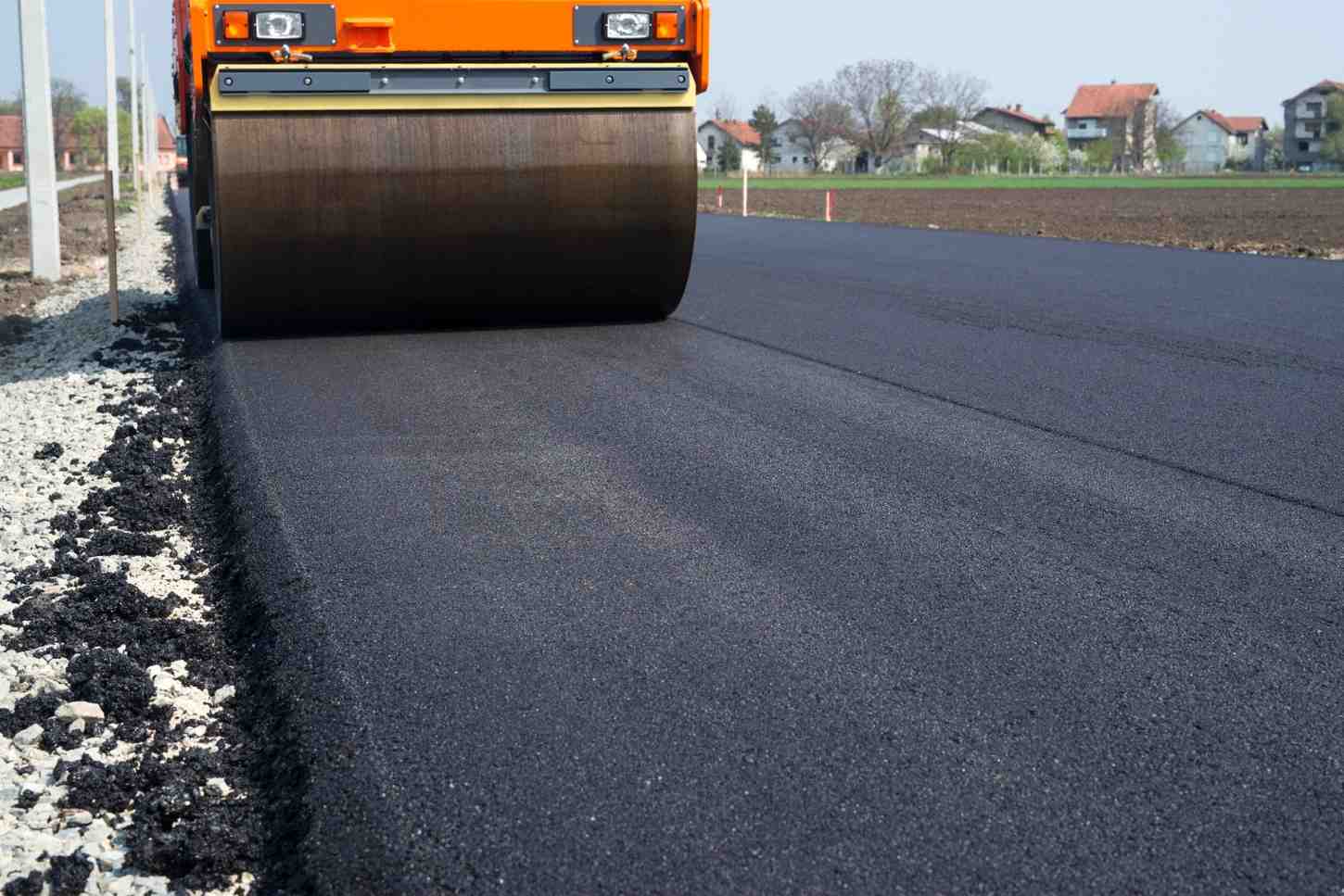Asphalt is one of the most widely used materials in road construction, maintenance, and infrastructure development. Traditionally, it has been applied in its hot mix form, requiring high temperatures and large amounts of energy. However, the growing need for sustainable, cost-effective, and environmentally friendly construction practices has shifted attention to a different solution: asphalt emulsion.
Asphalt emulsion is essentially asphalt cement (the binder in traditional asphalt) dispersed in water with the help of an emulsifying agent. This formulation allows asphalt to be used at lower temperatures and in more versatile applications. Asphalt emulsions have revolutionized road construction and maintenance by reducing costs, improving safety, and supporting sustainability goals.
In this article, we will explore the benefits of asphalt emulsion in detail, breaking down its advantages for construction, the environment, safety, performance, and long-term cost-effectiveness.
What is Asphalt Emulsion?
Before highlighting the benefits, it’s important to clearly describe what asphalt emulsion is. Asphalt emulsion is a stable mixture where microscopic particles of asphalt cement are suspended in water. Emulsifying agents—often soap-like chemicals—are added to keep the asphalt droplets dispersed and prevent separation.
The asphalt emulsion typically contains:
- Asphalt cement: The sticky, black binder derived from petroleum.
- Water: Making up about 30–50% of the mixture.
- Emulsifier: Usually less than 1%, but critical for stability.
Because asphalt is normally hydrophobic and immiscible with water, the emulsifier plays a key role by surrounding asphalt droplets and allowing them to mix with water in a stable form.
Once applied, the water in the emulsion evaporates, leaving behind the asphalt binder that adheres to aggregates and surfaces.
Types of Asphalt Emulsions
There are different categories of asphalt emulsions, each designed for specific applications:
- Cationic emulsions: Positively charged asphalt droplets that bond well with negatively charged aggregates.
- Anionic emulsions: Negatively charged droplets that work with positively charged aggregates.
- Non-ionic emulsions: Less common, used in specialized conditions.
- Rapid-setting, medium-setting, and slow-setting emulsions: Defined by how quickly the emulsion “breaks” (separates and bonds to the surface).
This variety makes asphalt emulsion highly versatile across multiple road construction and maintenance applications.
Benefits of Asphalt Emulsion
1. Environmental Benefits
One of the strongest advantages of asphalt emulsion is its positive impact on the environment compared to hot asphalt mixes.
- Reduced energy consumption: Unlike hot mix asphalt, which must be heated to 300°F or higher, asphalt emulsion can often be applied at ambient temperatures. This reduces energy use significantly.
- Lower emissions: By avoiding high-temperature heating, asphalt emulsions release far fewer greenhouse gases and volatile organic compounds (VOCs).
- Less dependency on fossil fuels: Since less energy is required for heating, fuel use in construction is minimized.
- Support for recycling: Asphalt emulsion is frequently used in cold in-place recycling and full-depth reclamation, making it possible to reuse existing pavement instead of sending it to landfills.
Overall, asphalt emulsions align well with global efforts to build sustainable infrastructure and reduce carbon footprints.
2. Cost Efficiency
Cost considerations are crucial in any construction project. Asphalt emulsion provides significant savings at multiple levels:
- Lower initial costs: Production of asphalt emulsion requires less energy and less equipment than hot mix asphalt.
- Reduced transportation costs: Emulsion can often be produced closer to the job site in portable plants, cutting down on hauling expenses.
- Extended pavement life: When used for preventive maintenance treatments such as seal coats or slurry seals, asphalt emulsion can extend the lifespan of roads, delaying the need for costly reconstruction.
- Reduced maintenance costs: Because emulsions improve flexibility and crack resistance, roads treated with them require less frequent repairs.
In many cases, governments and municipalities choose asphalt emulsion specifically because it stretches limited budgets further.
3. Safety Advantages
Safety is a major benefit in both application and road performance:
- Lower application temperature: Asphalt emulsions are applied at lower temperatures, reducing the risk of burns and heat-related injuries for workers.
- Less flammable: Hot asphalt requires constant monitoring for fire hazards, whereas asphalt emulsion is water-based and much safer to handle.
- Improved road safety: Roads treated with emulsions gain smoother surfaces, better skid resistance, and improved visibility through seal coating.
By reducing risks both during construction and after completion, asphalt emulsions provide a safer solution for workers and drivers alike.
4. Performance and Versatility
Performance is where asphalt emulsion truly shines. Its ability to adapt to different climates, road conditions, and applications makes it an invaluable material.
- Flexibility: Emulsions can be tailored for specific aggregate types and climates, ensuring strong adhesion and durability.
- Moisture resistance: Once the water evaporates, emulsions leave behind a strong binder that protects pavements from water penetration.
- Wide range of applications: Emulsions are used in chip seals, fog seals, tack coats, slurry seals, microsurfacing, cold mix asphalt, and recycling processes.
- Fast curing: Some emulsions are engineered to set rapidly, allowing roads to reopen quickly after application.
These qualities make asphalt emulsions not only versatile but also highly effective in extending pavement life.
5. Support for Recycling and Sustainability
Recycling is one of the greatest strengths of asphalt emulsion. It enables the reuse of old pavement materials without compromising quality.
- Cold in-place recycling (CIR): Asphalt emulsion is used to reprocess existing pavement on-site, reducing waste and transportation.
- Full-depth reclamation (FDR): Roads are rebuilt using the existing materials, with emulsions acting as a stabilizing binder.
- Reduced raw material use: Recycling with asphalt emulsions lowers demand for new aggregates and asphalt, conserving natural resources.
This recycling capability makes asphalt emulsion a central part of circular economy practices in road construction.
6. Adaptability to Different Climates
Asphalt emulsion is highly adaptable and can be modified for hot, cold, or wet climates.
- In cold climates, slow-setting emulsions remain workable long enough to be applied before curing.
- In hot climates, emulsions resist softening and deformation better than traditional binders.
- In rain-prone regions, emulsions provide excellent water resistance once cured.
This adaptability ensures that asphalt emulsion can be used worldwide, regardless of local environmental conditions.
7. Improved Road Durability
Roads constructed or maintained with asphalt emulsion exhibit improved resistance to cracking, raveling, and pothole formation. By sealing minor surface defects and protecting pavements from oxidation, emulsions slow down deterioration. This leads to:
- Longer-lasting pavements
- Reduced frequency of major repairs
- Enhanced driving comfort
Durable roads are not only cost-effective but also improve user satisfaction and safety.
The Bigger Picture: Why Asphalt Emulsion Matters
When evaluating construction materials, it’s important to look beyond the initial application. Asphalt emulsion represents a broader shift in infrastructure development—toward more sustainable, affordable, and safe practices.
It addresses global concerns such as:
- Climate change and emissions reduction.
- The need for cost-effective infrastructure solutions.
- Worker and driver safety.
- Circular economy and recycling of existing resources.
Asphalt emulsion offers a balance of performance, environmental stewardship, and economic efficiency that few other materials can match.
Conclusion
Asphalt emulsion has transformed the way roads are built and maintained. By combining asphalt cement, water, and emulsifiers into a versatile, low-temperature mixture, it provides significant benefits across multiple dimensions.
From an environmental standpoint, asphalt emulsion reduces energy use, emissions, and raw material consumption. From a financial perspective, it lowers initial, transportation, and maintenance costs. In terms of safety, it protects workers during application and drivers after completion. Its performance advantages—including flexibility, durability, and recyclability—make it indispensable in modern road construction.
In short, asphalt emulsion is not just an alternative to hot asphalt; it is a superior solution that aligns with the pressing needs of our time. With growing global emphasis on sustainability and infrastructure efficiency, asphalt emulsions are likely to remain a cornerstone of road building for decades to come.


